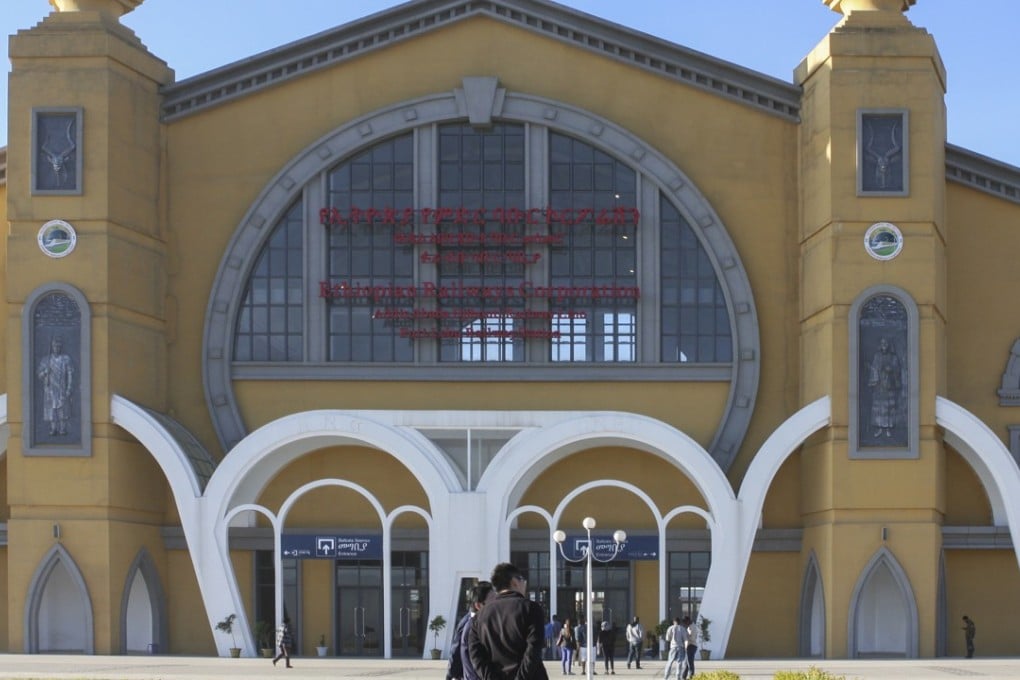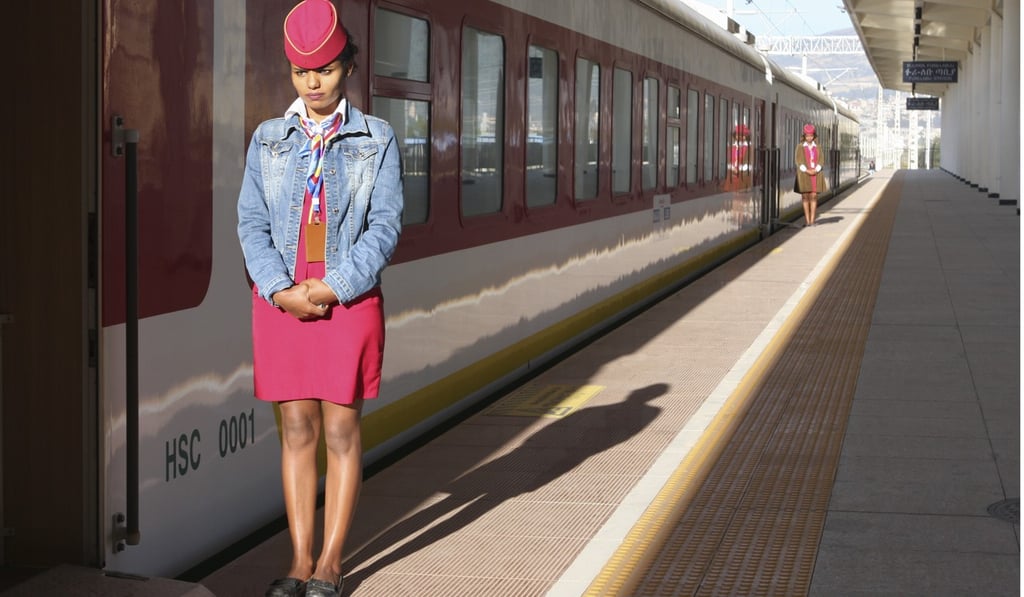On board the Chinese-built Ethiopia to Djibouti train, a lesson in compromise for clashing cultures
- When Chinese conformity came up against khat and a colourful cast of Horn of Africa passengers, flexibility was key

In the middle of the departure hall stands a sign. On it is an arrow pointing to the right – “Domestic” – and one pointing to the left – “Cross-border”. Djibouti-bound passengers turn left.
Since January, the new Addis Ababa to Djibouti City railway line has been carrying passengers between the Ethiopian capital and the coastal capital of its diminutive but strategically important neighbour. The 728km line is a joint venture involving the governments of the two countries and China, which built and largely financed the US$4 billion endeavour.
That explains why, when approaching the Furi-Lebu railway station on Addis Ababa’s outskirts, one could be forgiven for thinking an Oriental palace has been misplaced in the Horn of Africa. The Chinese are operating the line for six years before handing over to the Ethiopia Djibouti Railway (EDR) company, which is why a Chinese conductor is overseeing Ethiopian platform guards in smart red waistcoats and hats as they guide passengers onto the 08:00 to Djibouti City.
The guards are positioned at regular intervals along the platform edge as the train pulls slowly away. Standing facing the carriages with arms by their sides, they look ill-at-ease with Chinese protocol.
Within five minutes, the scruffy outskirts of Addis Ababa have been replaced by village huts, cattle ambling beside the track and fields stretching to hills silhouetted in the distance. In contrast to the expansive view, the atmosphere inside the half-empty carriage feels strained, dull even. The only voice to be heard is that coming from the speaker system: “Do not take shoes off, lie down on the seats, raise your voice or spit in the carriage; remember to put soft paper in the bin in case it blocks the toilet, don’t forget to flush and turn taps off after washing hands; please keep the tidiness – it is everyone’s responsibility.”
